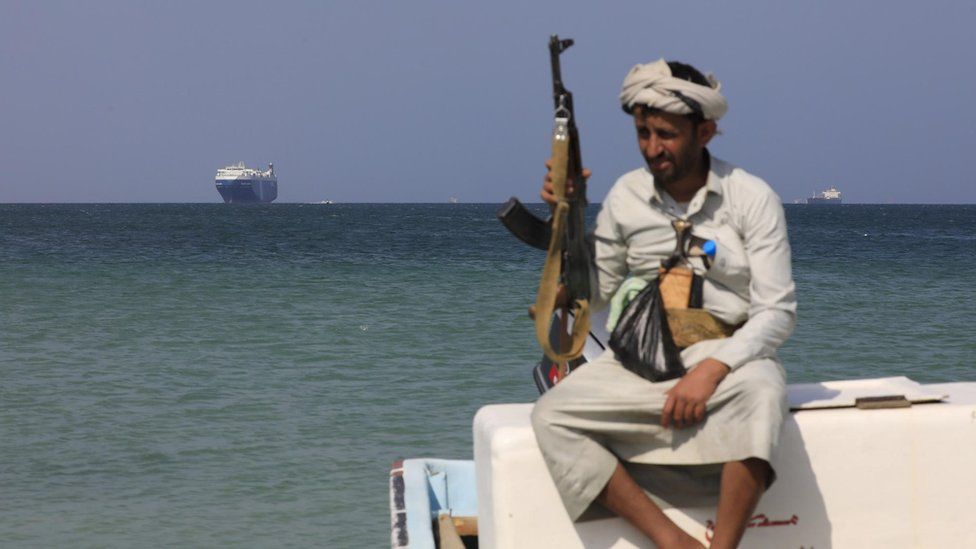-

-
-
Loading

Loading

A group of twelve states, including the US and UK, have issued a warning to rebels in Yemen stating that they will face consequences if they continue to attack commercial shipping in the Red Sea. The rebels, known as Houthi rebels, have declared their support for Hamas in the ongoing conflict between Israel and Palestine. They have attacked commercial ships in the Red Sea over twenty times since November, using various methods such as missiles, drones, boats, and helicopters. The rebels have often falsely claimed that the ships they target are linked to Israel. While US and British warships have intercepted some missiles, they have refrained from attacking targets in Yemen itself. However, this could change in the near future. The group of twelve countries, including Australia, Bahrain, Canada, Denmark, Germany, Italy, Japan, the Netherlands, New Zealand, and the US, has formally warned the Houthis against their continued attacks. They have labeled these attacks as "illegal, unacceptable, and profoundly destabilizing." The allies have emphasized that there is no justifiable reason to intentionally target civilian ships and naval vessels and have warned the rebels that they will face consequences if the attacks persist. This is widely interpreted as a threat of military action against targets in Yemen, potentially including missile storage and launch sites. The group also called for an immediate end to the attacks, as they pose a direct threat to the freedom of navigation in the Red Sea, a critical waterway responsible for almost 15% of global trade. The fear is that fuel prices may rise, and supply chains could be disrupted. In response to the attacks, the International Chamber of Shipping reveals that 20% of the world's container ships are avoiding the Red Sea and taking longer routes around southern Africa. At the UN Security Council debate, there was unanimous condemnation of the Houthi attacks, with warnings against further escalation. The US ambassador to the UN for management and reform expressed concern over the grave implications of the attacks for maritime security, international shipping, and commerce. He emphasized Iran's role as the root cause of the problem, highlighting its enabling of the Houthi attacks. Although Iran has denied supporting the strikes, it remains unclear how they will respond if Western airstrikes are launched against their Yemeni allies. The Houthi rebels are specifically targeting ships passing through the Bab al-Mandab Strait, a treacherous 20-mile channel known as the Gate of Tears. The rebels belong to a sub-sect of Yemen's Shia Muslim minority called the Zaidis and are named after their founder, Hussein al Houthi. They have been engaged in a civil war against Yemen's government since 2014, controlling the capital city of Sana'a, the northern region, and the Red Sea coastline. The government is supported by a coalition of Arab countries, led by Saudi Arabia and the UAE, in their fight against the Houthi rebels.